By Amira Bennabi Kunbargi

I serendipitously stumbled upon this picture book a few years ago after my five-year-old picked it from a pile of books at the library. She spied an odd bite mark on the back cover and insisted I read it to her.
With little hope for substance, I swiftly scanned the pages, then read the book to her thinking it was likely another flippant story that might give her a laugh or two.
We both laughed, and off she went to find another book. But as I sat there, I read it again, slowly this time, and fell in love.
Information is not knowledge, and it’s imperative that children understand this distinction.
We live in a time when we can know about almost anything at any time. We collect facts. Enough facts to make us feel informed, equipped, intelligent. After a while, it becomes difficult to distinguish between what we’ve collected and what we’ve acquired, and we graduate ourselves to experts, or at the least, well-informed citizens. We then spew out information, odd tidbits, facts here and there, enough to satiate our covert conceit. But unlike computers, our facts are tinged by our biases — our experiences (or lack thereof) — so they become muddled, and then further fuddled by algorithmic echo chambers. Finally, out comes a misinformed generation who thinks itself a demigod to its own subjective universe. Well, that is bleak.

Simply said, information is not knowledge, and it’s imperative, now more than ever, that children understand this distinction.
The Incredible Book Eating Boy teaches children to distinguish the accumulation of facts from the process of learning–information from knowledge.
Knowledge is slow. And we’re losing our ability to be slow. This book highlights for children how the rush to consume information (and misinformation) leads to confusion. We need “time to digest it properly.” Time to take the information in and turn it from something we’ve collected into something we understand.
Otherwise logic will be lost, “2 + 6 [will equal] elephant,” and George Orwell will have missed the mark by about 40 years!
See Mindful Muslim Reader ratings and content advisories for this book.
TEACHING TOOLS
- What happened when Henry consumed too much, too fast? He became ill; he made mistakes; he became confused.
- How did Henry feel when he first started eating books?
- Was Henry really smarter? No, he became confused.
- What did Henry realize in the end? You need to ‘digest’ what you consume; you can be smart, but it takes time.
- What do you think it means to be smart/intelligent? to have true knowledge
- What is knowledge? a thorough and internal understanding of information—see recipe for knowledge below
- What is the difference between information and knowledge? Information is facts we collect, but knowledge is an understanding we can apply; information stays in our brains, but knowledge manifests in our hearts and limbs.
- How do we acquire knowledge? from verified and trusted sources: books, teachers, experts
- Let’s metaphorically bake! You can share this “recipe for knowledge” with your child. This can be turned into a discussion or a fun activity.
- Learn information.
- Add guidance to it. This is especially important to highlight–knowledge without guidance can turn into compounded ignorance.
- Knead it into understanding.
- Sprinkle it with experience.
- Finally, bake it into application.


